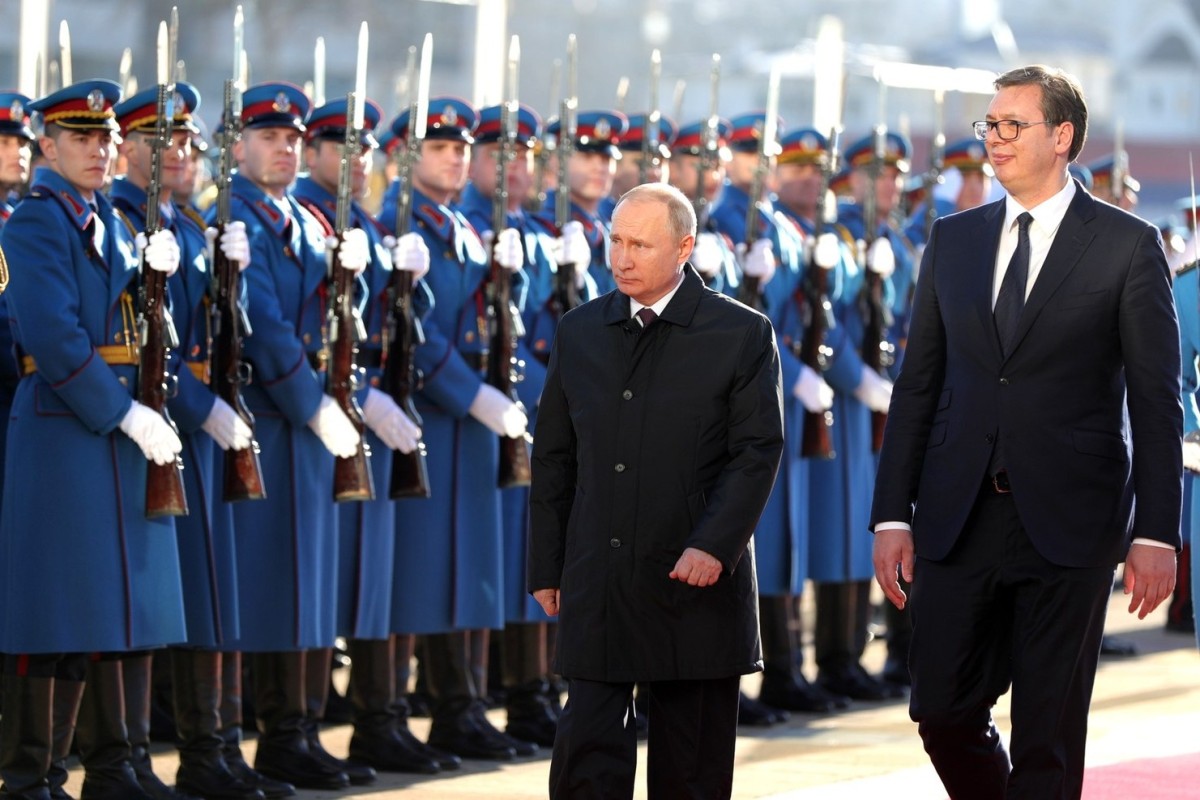Sponsored Content
Serbia's Complicated Relationship with Russia
Serbia's relatively close relationship with Russia, while based on a somewhat haggard history, has been rather positive in recent years. Since Russia's attack, but also before, this relationship has been crumbling more and more. There are several reasons for this, some of which are currently intensifying.
 Russian President Vladimir Putin (l.) visiting Serbia with Serbian President Aleksandar Vucic (r.). Whether relations between Serbia and Russia will remain good is questionable. / Picture: © Wikipedia / Presidential Press and Information Office / Kremlin.ru (CC BY 4.0)
Russian President Vladimir Putin (l.) visiting Serbia with Serbian President Aleksandar Vucic (r.). Whether relations between Serbia and Russia will remain good is questionable. / Picture: © Wikipedia / Presidential Press and Information Office / Kremlin.ru (CC BY 4.0)
Serbia is the only European country besides Belarus that does not support the West's sanctions against Russia, even though Vucic's government has condemned the invasion of Ukraine. A not inconsiderable number of Serbians support the Russian attack on Ukraine, and there have also been pro-Russian demonstrations in the capital Belgrade.
Serbia's traditionally close relationship…
or Log In
Fast News Search





